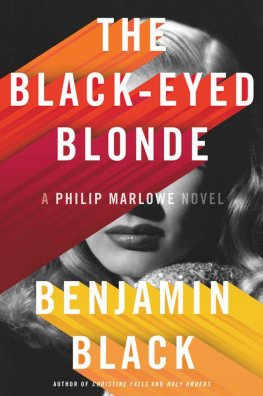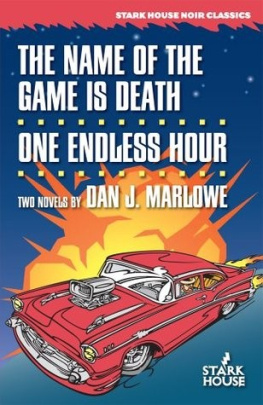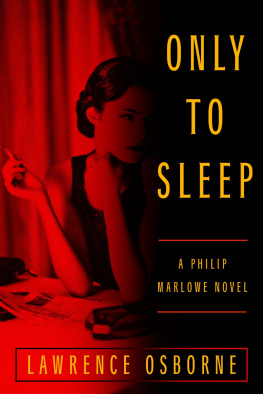James L. Nelson
The Guardship
To Lisa, my beloved wife
PUBLICK TIMES in Williamsburg.
April the fifth, the Year of Our Lord 1701.
The night before Marlowe killed young Wilkenson.
The night Marlowe was asked to command the guardship.
The colony of Virginia was a wild place then, a wilderness of great rivers and creeks and islands and mile after mile of woodland that had never seen a white mans face. Otter and beaver in vast numbers. Enough fish in the water that a man could fill a canoe in half a day. A place where a man could disappear forever, and many did, and not always by their own design.
There were few towns of any note in the tidewater regions. Travel in Virginia and Maryland was made easy by the great Chesapeake Bay. Rather than struggling over decrepit roads the people there used the rivers as their highways, and there was little need for them to bunch up in settlements.
So, they lived in far-flung plantations where, with ax and torch, they beat back the thick forest to make room for tobacco, more and more tobacco, that unfailing cash crop.
And when they did congregate for Publick Times in the capital city of Williamsburg, after their long and unnatural solitude, it was a raucous time indeed. The streets overflowed with people. Men and women, freemen, indentured servants, and slaves moved in throngs from one revelry to the next. Beautiful coaches with matching teams and footmen in fine livery pushed down sandy Duke of Glouchester Street.
As the warm day gave way to the cool of evening, a spirit of good humor prevailed throughout the tightly packed taverns, boyling houses, publick houses, and ordinaries. All men, gentlemen and commoners, were fellows on that day, and planters, tradesmen, farmers, laborers, mechanics, sailors, thieves, and picaroons reveled together in the streets.
Thomas Marlowe stood to one side of the ballroom, the grand ballroom in the governors house, watching the brilliant silks and velvets, the long white wigs of the gentlemen, and the great piles of hair atop the ladies heads as they moved across the floor in their elaborate cotillions and minutes.
He could feel the sweat running down his face under his own wig. The weight of his red silk coat with its gold embroidery, the snug-fitting waistcoat, seemed to grow more unbearable with each moment. His shoes pinched intolerably.
The air outside was cool, sweet, and pleasant, but inside the hall, with its great chandeliers and their hundreds of burning candles and the crowd of people all whirling and curtsying across the floor, the atmosphere was thick and all but unbearable.
From a nearby open window Marlowe caught a welcome breath of air, and with it came the muted sounds of gunfire and singing and shouting and laughter. The common people had taken their celebrations to the public square, carrying on in the country manner. It was a very different kind of celebration than the governors highly civilized affair, and, Marlowe imagined, considerably more fun.
But despite his discomfort he managed to do a tolerable job of appearing to enjoy himself. There was no one there, excepting Francis Bickerstaff, who stood beside him, who might have guessed at how miserable he was.
I quite fail to understand, Marlowe, why we must subject ourselves to this torment, Bickerstaff said. I am certain that
we are witnessing one of the circles of hell. I should think we will see enough of damnation in the next life that we might forgo it now.
Bickerstaff was the most plainly dressed man in the crowd. This is not to say that his clothing was poor, far from it. He wore a blue silk coat, adorned with only a bit of embroidery, and that blue as well, a simple white waistcoat, and breeches, all of the finest silk, unadorned, a plain cut, subtle and of the highest order.
Now, Bickerstaff, said Marlowe, we could hardly decline an invitation to the Governors Ball. One does not advance in Virginia society by staying at home and ignoring such affairs.
Why you should be so obsessed with rising in Virginia society is yet another mystery to me.
There are more things in heaven and earth than are dreamt of in your philosophy, Francis Bickerstaff. Marlow turned to his friend and smiled. Is that not what your William Shakespeare said?
Bickerstaff sniffed. Something to that effect, though he is hardly my William Shakespeare.
Marlowe was Bickerstaffs junior by about ten years, or so he guessed, but that was only a guess. Bickerstaff would not reveal his age, and Marlowe did not know his own for certainty, but he imagined Bickerstaff was around forty-five. He had a thin frame and the perpetually dour countenance of the serious pedagogue, which indeed he had once been. He was a learned man, skilled in Latin and Greek, mathematics, natural science, and all of those subjects befitting a gentleman.
Marlowe opened his mouth to reply, when his eye caught a parting in the crowd as the dancers drew apart with the precision of soldiers on a parade ground. He turned, and for an instant he could see clear to the far end of the room.
And there he saw her, for the first time that night.
Her hair was the color of fresh straw and made up in a great pile, held in place by a gold comb, which in turn was
covered with jewels that glinted in the light from the chandeliers.
Her skin was white and perfect and smooth from her forehead to the tops of her lovely round breasts, pushed up by her bodice. Her waist was tapered down perfectly to the point where her farthingale held silk skirts far out from her sides. She was beautiful, and though Marlowe had made no overtures in her direction, thinking it improper given her circumstance, and indeed had spoken to her but a few times, he was her slave.
Her name was Elizabeth. Elizabeth Tinling. She was twenty-three years of age and already a widow. Her late husband, Joseph, was one of the wealthiest planters in the tidewater. He had died two years before, of heart failure, or so it was generally presumed. There had not been much talk of his passing.
Marlowe had purchased the Tinling plantation from Elizabeth soon after his arrival in the colony. That afternoon when they had closed the deal, and perhaps half a dozen other chance encounters, was all of the intercourse that he had had with her.
From the moment he first saw her he had wanted more, but then, for all his wealth, he had held no place in colonial society, being newly arrived, enigmatic.
Much had changed in the intervening two years, and while he might not be the first man of Virginia, still his star was on the rise. He had seen to that.
He considered those things in the few seconds that he had Elizabeth in sight. Then, like the Red Sea closing on Pharaohs legions, the crowd came together again and she was lost to his view.
The dance that was now under way was one of the Scotch reels, a dance well within Marlowes limited ability to perform, and that bolstered his courage.
Bickerstaff, I do believe I shall ask Mrs. Tinling for the next dance.
Bravely said, Marlowe, but I think you will be frustrated in that endeavor. Here comes the governor. Bickerstaff nodded to another corner of the room. And he seems to be making a rhumb line for you. In the past few years Bickerstaff had taken to using nautical jargon.
Marlowe looked in the direction that Bickerstaff had indicated. Governor Nicholson was indeed working his way toward them though the crowd. The long, curly white hair of his wig swished around his collar like a horses tail as he nodded greetings to his many guests. He was agitated, Marlowe could tell, despite his attempts at gaiety as he pushed his way across the room.
He had reason to be agitated. Marlowe had seen to that as well.
Marlowe, Marlowe, how the devil are you? Nicholson asked, plowing through the last of his guests and extending a hand.







